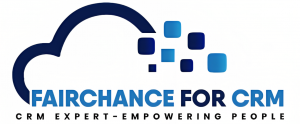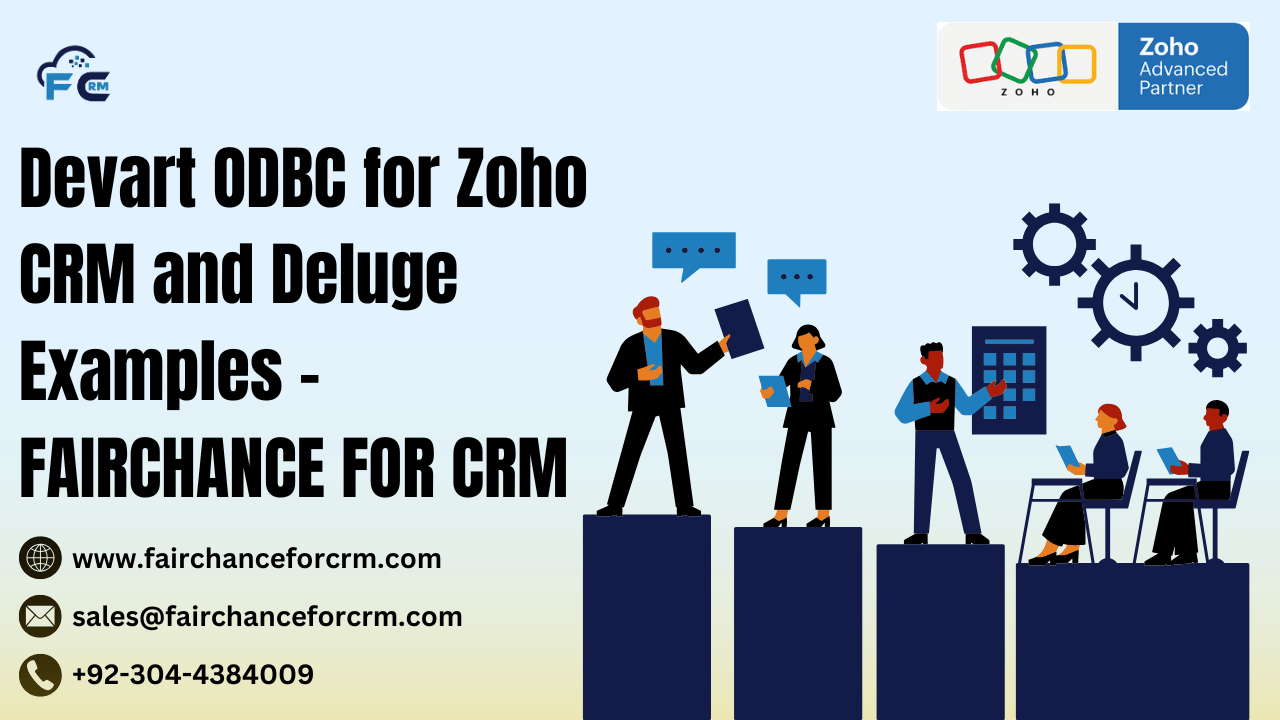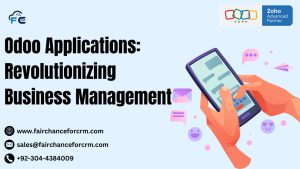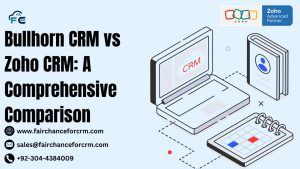Devart ODBC for Zoho CRM is a powerful tool that enables users to connect Zoho CRM to various third-party applications, databases, and analytics tools via the ODBC (Open Database Connectivity) standard.This enables companies to work with their Zoho CRM data in well-known settings such as Tableau, Power BI, or Microsoft Excel, among others. The ODBC driver facilitates smooth data extraction, modification, and reporting by bridging the gap between Zoho CRM and external systems.
The operation of Devart ODBC for Zoho CRM, its applications, and several instances of combining Zoho CRM data with Deluge (Zoho’s scripting language) to automate procedures will all be covered in this article.
Also Read:
- Draft and Sign Documents Online with Zoho Sign and Zoho Writer
- Unlocking Collaboration with View Share in Zoho Tables
- Integrating ServiceNow with Zoho CRM: FAIRCHANCE FOR CRM
- Zoho WorkDrive Expands Its Enterprise Capabilities with Workflow Automation, Data Loss Prevention, and More
- ControlHippo WhatsApp for Zoho CRM – FAIRCHANCE FOR CRM
What is Devart ODBC for Zoho CRM?
A common API for database management systems (DBMS) access is called ODBC. Devart’s ODBC Driver for Zoho CRM makes it possible to query Zoho CRM data as if it were a regular database, without requiring custom API calls or deep integrations. This makes it possible for users to extract CRM data for analysis, reporting, and system synchronization.
Key features of Devart ODBC for Zoho CRM include:
- Bi-directional Data Sync: You can query data and also push updates back to Zoho CRM.
- Real-Time Access: Allows you to work with live Zoho CRM data in external tools.
- Easy Integration: Can be integrated with a variety of tools and applications that support ODBC, such as MS Excel, Tableau, Power BI, and others.
- Custom Queries: The ODBC driver supports SQL queries, so you can easily select, filter, and analyze your CRM data.
Use Cases for Devart ODBC for Zoho CRM
- Reporting & Analytics: With this integration, businesses can create custom reports and dashboards by importing Zoho CRM data into Excel or BI tools like Power BI and Tableau.
- Data Migration: The ODBC connection enables businesses to migrate data between Zoho CRM and other systems or databases.
- Custom Applications: Developers can use the ODBC connection to build custom applications or tools that require access to Zoho CRM data.
Deluge and Devart ODBC for Zoho CRM
Deluge (short for Data Enriched Language for the Universal Grid Environment) is Zoho’s scripting language that enables automation of tasks, customization of Zoho apps, and integration with external systems.
While the ODBC driver itself is typically used for integrating Zoho CRM with external applications (like Excel, Tableau, etc.), Deluge can be used to interact with this data within the Zoho ecosystem, allowing users to perform advanced automation, data manipulation, and custom workflows.
In Deluge, you can use Zoho CRM’s inbuilt features (such as the zoho.crm functions) to interact with your CRM data, while combining it with external systems via ODBC or API calls.
Deluge Examples with Devart ODBC for Zoho CRM
- Sync Data from External Database to Zoho CRM You can set up a Deluge script that fetches data from an external database connected via ODBC and updates corresponding records in Zoho CRM.Example:
In this example:
- Data is fetched from an external database using SQL (via ODBC).
- The script loops through the data and creates corresponding leads in Zoho CRM.
- Generate Reports from Zoho CRM Data and External Data You can write Deluge scripts to fetch Zoho CRM data and merge it with data from external sources (via ODBC) for comprehensive reporting.Example:
In this case:
- Deluge fetches both Zoho CRM data (deals) and external data (sales) from an ODBC-connected database.
- The data is merged based on a common field (e.g.,
Deal ID). - A report is generated and sent via email.
- Trigger Zoho CRM Updates Based on External Database Changes With Deluge, you can automate updates to Zoho CRM records whenever changes occur in an external database connected via ODBC.Example:
This example:
- Tracks changes in an external database (customer updates).
- Automatically updates the corresponding customer records in Zoho CRM based on the
contact_id.
Conclusion
Devart ODBC for Zoho CRM and Deluge together provide a powerful solution for businesses looking to integrate Zoho CRM with other systems and automate tasks. The ODBC driver makes it easy to pull data from external databases, while Deluge enables you to manipulate, automate, and push updates to Zoho CRM based on real-time data.
These integrations offer businesses flexibility in managing and reporting on their CRM data, driving better decision-making and efficiency in operations. Whether it’s for syncing data, reporting, or automating workflows, leveraging Devart ODBC for Zoho CRM in conjunction with Deluge can significantly enhance your CRM processes.
For more information about the Devart ODBC for Zoho CRM and Deluge, visit this link.
If you want to Free Trail Zoho, click on this link.




